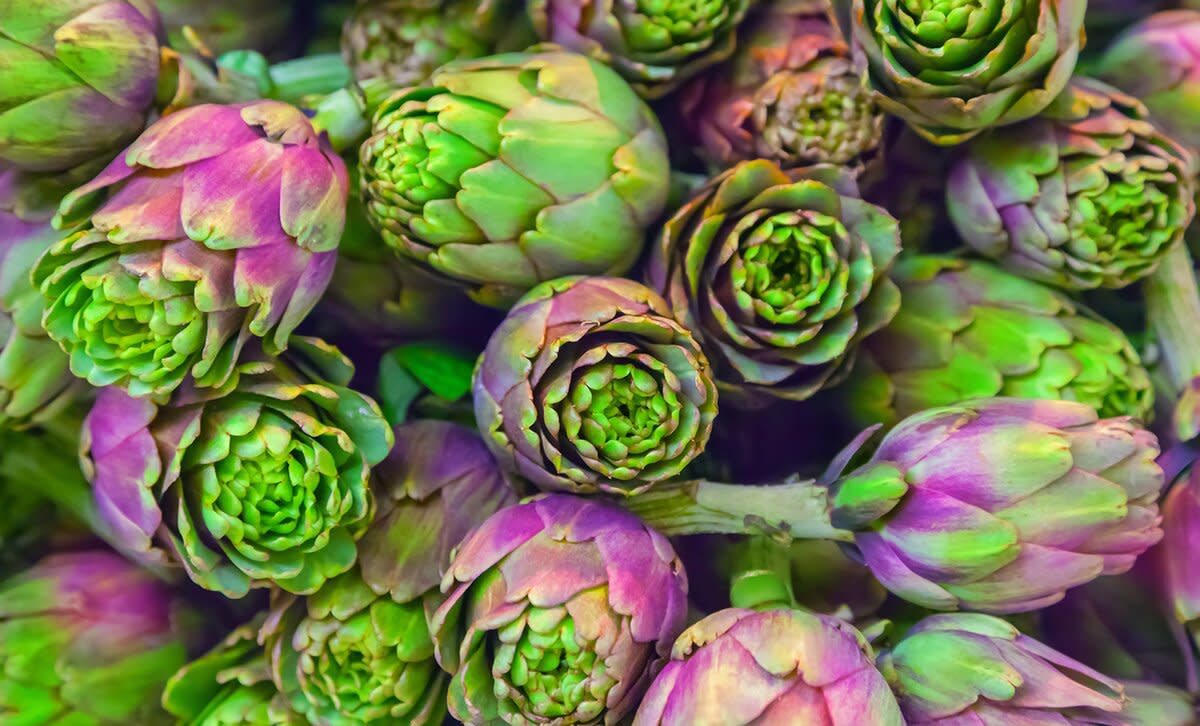Should You Join Your Local CSA Farm Share?

When I mention the acronym CSA to folks, I'm often met with a perplexed look and a question: "What's a CSA?"
CSA stands for community supported agriculture-a commitment in which members pay a lump sum upfront to secure a weekly box of produce, also known as a "share," throughout the farming season. Subscribing to a CSA can be a positive experience for those looking to eat more sustainably, nourish their bodies with produce, and support their local communities.
While the benefits are many, jumping into a CSA without knowing the ins and outs can leave you feeling disappointed. Before you purchase a share this season, make sure to weigh the pros and cons of being a CSA member.
1. You help your farmer.
The nature of farming is unpredictable-the weather, pests, slow days at the farmers' market-and with that come uncertain financials. Paying the farmer up front before the CSA season begins helps with the farm's cash flow, ensuring them a certain number of sales to support the growing season. CSAs also allow farmers to spend time and energy on marketing when they actually have time and energy, well before the long, exhausting days of harvesting out in the field.
2. It's a risky commitment.
What happens if there's a snowstorm in April? What if tomato blight destroys the entire crop? What if your farmer has an unexpected death in the family? When you enter into a CSA, you're assuming some shared risk. If produce is slim and boxes are light, you likely won't be reimbursed and might wind up feeling shortchanged. But rest assured that farmers will prioritize their CSA members if things turn sour.
3. You'll reap the nutrition benefits of variety.
CSA shares vary from farm to farm. Some include only vegetables, others sneak in seasonal fruits like berries and peaches, and some even throw in wild flowers. Be sure to ask your farm what they include in their CSA and if they offer other shares like meat, dairy, or eggs. Whether it's just veggies or all kinds of produce, each CSA share includes variety from week to week, based on what's being harvested. Early in the farming season, you'll see lots of greens like garlic scapes, watercress, pea shoots, and fennel. Later in the season, you'll unpack tomatoes, corn, and winter squash. The beauty of this is that you'll reap the nutrition benefits of eating a wide variety of produce, obtaining all the vitamins, minerals, and antioxidants you need. Plus, local produce retains more nutrients than conventional produce because it has less distance to travel and is consumed shortly after harvest.
4. You gotta cook at home.
This is where some self-awareness can come in handy. Are you the type of person who loves to eat out? Do you travel a ton during the summer? When you clean out your fridge, are you tossing out produce that's gone bad? These are the questions to ask yourself before you shell out those dollars for a CSA. Weekly boxes of fresh produce add up. If you're not diligent about cooking at home, you'll find yourself tossing a lot of those veggies in the compost bin. There are ways to work around this, though. You could split your CSA with a friend and rotate weekly pickups, designate a neighbor to donate your box to when you're on vacation, or try pickling, canning, or juicing your leftover produce. (Here's How to Cook Vegetables You'll Crave.)
5. It can help you become adventurous in the kitchen.
If you're bored with the meals you've made over and over again and are seeking some inspiration, then a CSA might be exactly what you need. CSA shares force you to try cooking with produce that may be new to you, like kohlrabi, pattypan squash, garlic scapes, Jerusalem artichokes, or dandelion greens. Many farms share recipes for the produce in their boxes, but be prepared to search for culinary inspiration on your own. If the thought of spending extra time paging through cookbooks or scrolling through Pinterest for culinary tips seems exhausting, then sticking to what you know at the farmers' market may be your best bet. (See: The 10 Best Farmers' Markets In the U.S.)
6. You won't get everything you need.
When weighing the price tag of a CSA, a common misconception is that it will cover all of your produce for the season. But keep in mind that you'll likely still need to head to the grocery store for fruit and frequently used cooking staples like onions and garlic. The cost of CSAs ranges widely across the country depending on the size of the share and the farm's location, but on average it costs $300 to $600 for a four-month membership, which is about $18 to $37 per week. A weekly trip to the farmers' market may end up being cheaper depending how much you purchase. However, if you're anything like me and have a hard time making it to the farmers' market every week, a CSA can be a great option.
